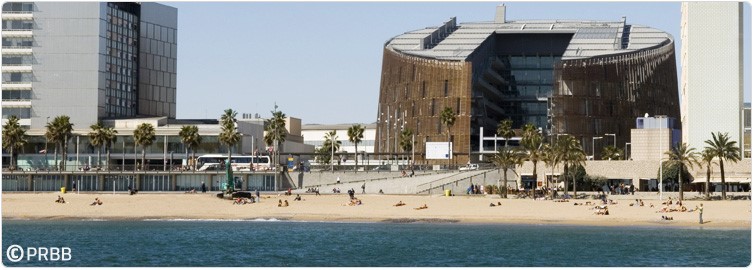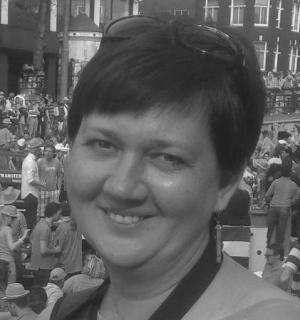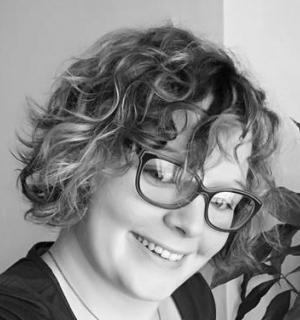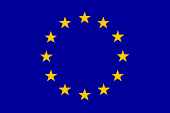Our three day training Bootcamp took place from 18-20 April 2018, in the Centre for Genomic Regulation in Barcelona.
Dashboard
Agenda
Day 1 – 18 AprilToday revolves around the different aspects of open science, and the materials that can support your training events.
9:00 – 10:00 Introduction to FOSTER and icebreaker exercise - Eloy Rodrigues, Universidade do Minho and Damjana Kastelic, Centre for Genomic Regulation
10:00 – 10:15 Code of conduct - Martine Oudenhoven, LIBER (Association of European Research Libraries)
10:15 - 10:45 Open Science: what and why and best practices in open research - Nancy Pontika, Open University
10:45 - 11:00 Coffee break
11:00 - 12:00 Open access publishing, open peer review and metrics - Helene Brinken, SUB Göttingen, Maria Antónia Correia, Universidade do Minho and Iryna Kuchma, EIFL
12:00 - 13:00 Open research data, ethics and data protection - Joy Davidson, DCC
13:00 – 14:00 Lunch near the venue
14:00 - 14:45 Licensing, re-use and innovation - Gwen Franck, EIFL, Iryna Kuchma, EIFL and Reme Melero, CSIC
14:45 – 15:30 Open source software and workflows and open notebook - Toni Hermoso, Centre for Genomic Regulation; Javier Quilez, Clarivate
15:30 – 15:45 Text and data mining (TDM) and citizen science - Nancy Pontika, Open University and Martine Oudenhoven, LIBER
15:45 – 16:00 Coffee break
16:00 – 17:30 Putting open science into context, a case study - Pedro Fernandes, Instituto Gulbenkian de Ciência
Evening Tapas workshop
Day 2 – 19 April
On the second day of the bootcamp, you will be trained on how to give training. In the afternoon you will work on your own open science mini-training in small groups.
9:00 – 9:15 Warming-up for day 2 - Gwen Franck, EIFL
9:15 – 11:30 How to give training part 1 - Bianca Kramer, Utrecht University and Jeroen Bosman, Utrecht University
11:30 – 12:00 Coffee break
12:00 – 13:00 How to give training part 2 - Pedro Fernandes, Instituto Gulbenkian de Ciência
13:00 – 14:30 Get to know your team / lunch
14:00 – 18:00 Design your own open science minitraining - Group work
18:00 Group picture
Day 3 – 20 April
On the third day, everyone will give the training they prepared the day before to the other bootcamp participants. In the afternoon you will work on your own roadmap: a plan of the trainings you will give and how to get there.
9:00 – 9:15 Warming-up for day 3
9:15 – 11:30 Mini trainings + individual feedback - Split into two groups
11:30 – 12:00 Coffee break
12:00 – 13:00 Last mini training + evaluation and feedback - Pedro Fernandes, Instituto Gulbenkian de Ciência and Helene Brinken, SUB Göttingen
13:00 – 14:00 Group lunch in nearby restaurant
14:00 – 15:30 Your own open science training roadmap - Individual work
15:30 – 16:30 Wrap up + evaluation + certification - Martine Oudenhoven, LIBER
Click to download the agenda as a PDF.
Venue
CRG
The Centre for Genomic Regulation (CRG) is an international biomedical research institute of excellence, created in December 2000. The mission of the CRG is to discover and advance knowledge for the benefit of society, public health and economic prosperity.
The CRG believes that the medicine of the future depends on the groundbreaking science of today. This requires an interdisciplinary scientific team focused on understanding the complexity of life from the genome to the cell to a whole organism and its interaction with the environment, offering an integrated view of genetic diseases.
The CRG is located in the Barcelona Biomedical Research Park (PRBB).

How to get to the CRG
Directions
This is the address where the course will take place:
PRBB Building
Dr. Aiguader 88
08003 Barcelona
Map
Travel
From Barcelona Airport to the CRG (The whole journey takes approx. 50 min)
- Aerobus (El Prat Airport – Barcelona) The shuttle service is clearly signposted at the stops outside the terminals 1 (A1) and 2 (A2). Shuttle runs every 5-10 minutes and it takes approx. 20 min to get to Barcelona. You can either buy the ticket online or in cash to the driver with the bill not bigger than 20 euros. Return ticket price: 10.20€ (buy return ticket if you are staying in Barcelona less than 15 days).
- In the city, the shuttle stops at Placa España and Plaça Catalunya. If you go off at Placa España, then take a bus D20 (direction Trelawny-Av Litoral) and the terminal station is right at the PRBB building.
- If you go off the shuttle bus at Plaça Catalunya you will need to take the yellow (L4) underground line from “Urquinaona” direction to La Pau to “Ciutadella – Vila Olímpica” and from there is 5 min walking to the CRG.
From Barcelona Airport to the H10 Marina hotel (the whole journey takes approx. 40 min):
- Aerobus (El Prat Airport – Barcelona) Take the shuttle service and get off at Placa España, then take the red (L1) underground line towards Fondo and get off at Marina station. From there is 6 min walking to the hotel.
- If you go off the shuttle at Plaça Catalunya take the yellow (L4) underground line from “Urquinaona” direction to La Pau to “Bogatell” and from there is 6 min walking to the hotel. The journey takes 30 minutes and there is a shuttle every 5-10 minutes. https://goo.gl/maps/s44p4mu5nUn
- From H10 Marina hotel to the CRG: - To walk from the hotel to CRG - It is a 15 min walk - Or you can pick bus V21 (direction Playa Maritim) which will stop in front of the CRG. In order to take a bus or metro you can either buy ticket T-10 (costs 10,20 euros) which you can use for 10 rides (it is valid for bus and metro). Or you can buy an individual ticket (directly at the bus driver or at the metro stations). Other information
Bootcamp Trainers
The following trainers were present at the Bootcamp.



 Unless otherwise stated, all materials created by the FOSTER consortium are licensed under a CREATIVE COMMONS
ATTRIBUTION 4.0 INTERNATIONAL LICENSE.
Unless otherwise stated, all materials created by the FOSTER consortium are licensed under a CREATIVE COMMONS
ATTRIBUTION 4.0 INTERNATIONAL LICENSE.
 This project has received funding from the European Union’s Seventh Framework Programme for research,
technological development and demonstration under grant agreement no 612425.
This project has received funding from the European Union’s Seventh Framework Programme for research,
technological development and demonstration under grant agreement no 612425.